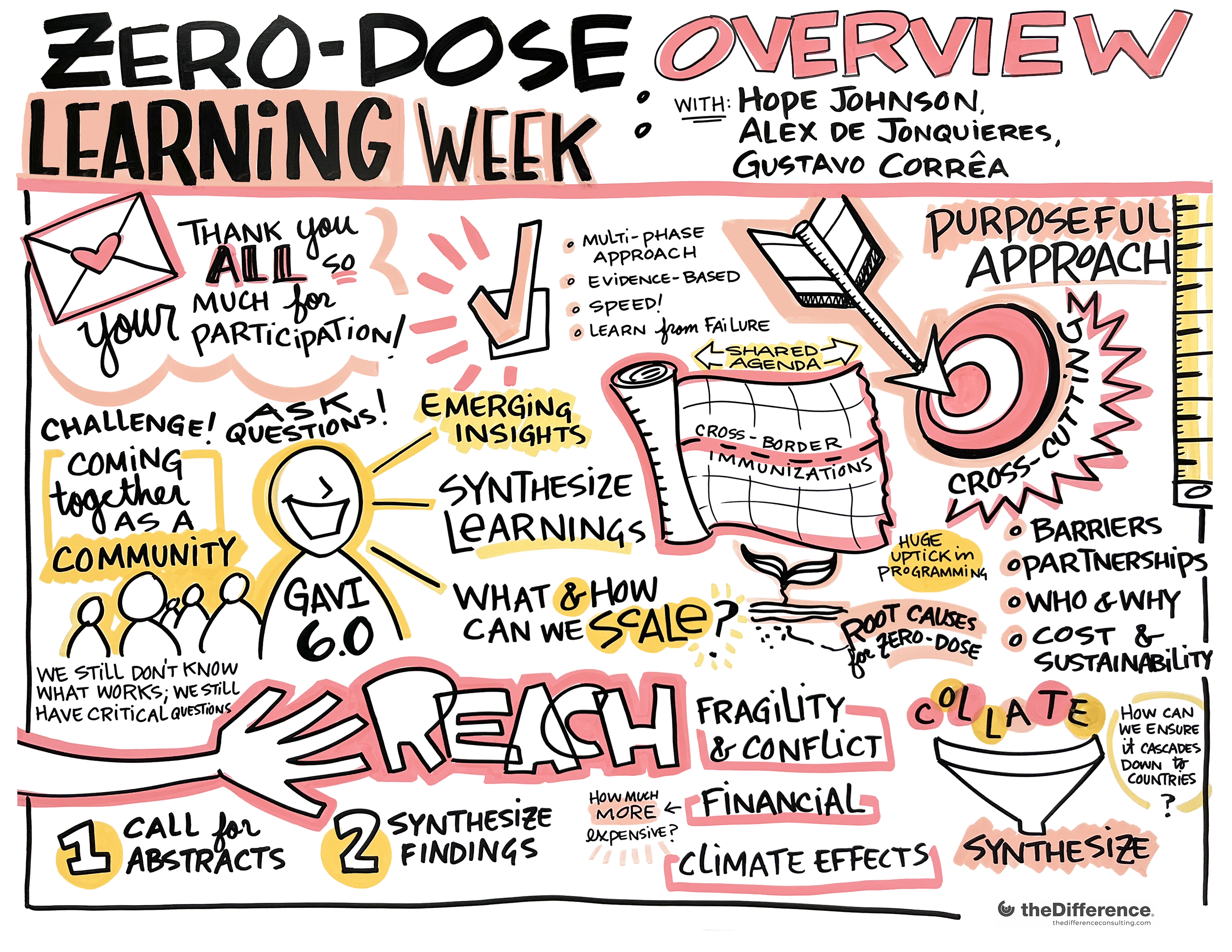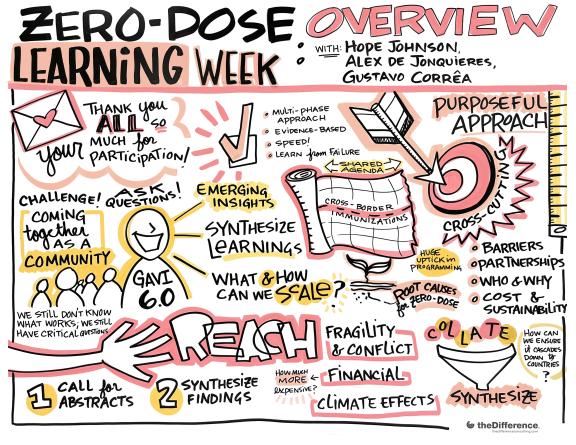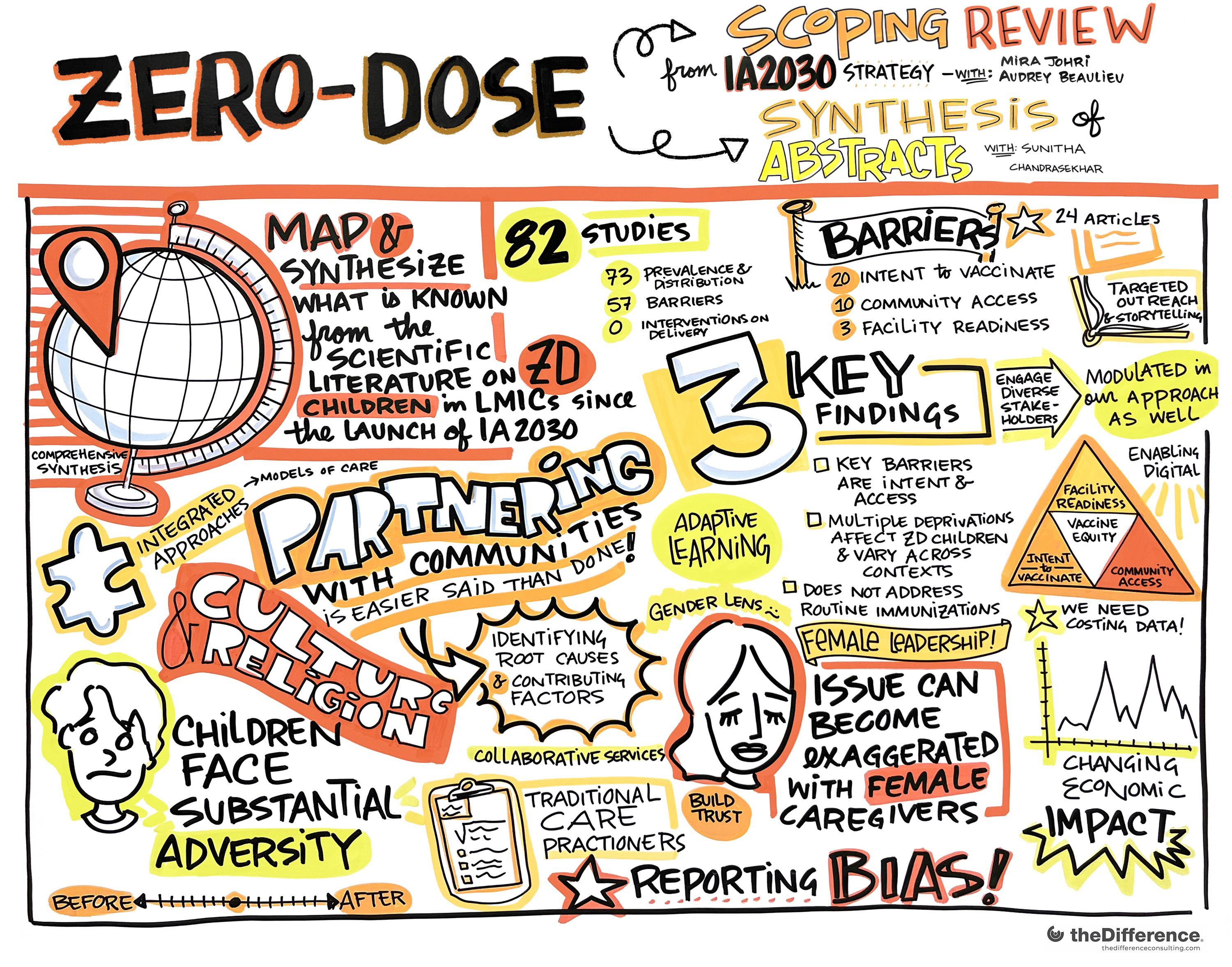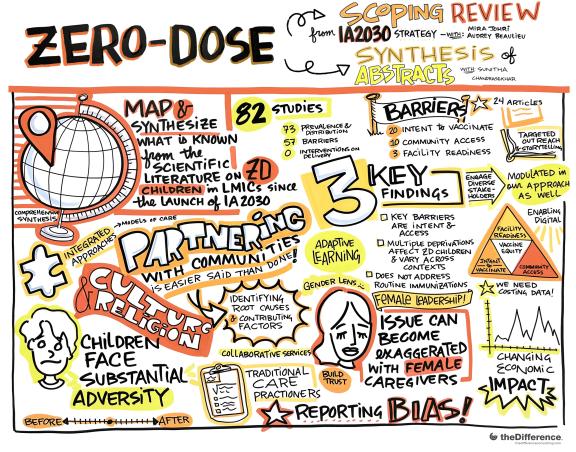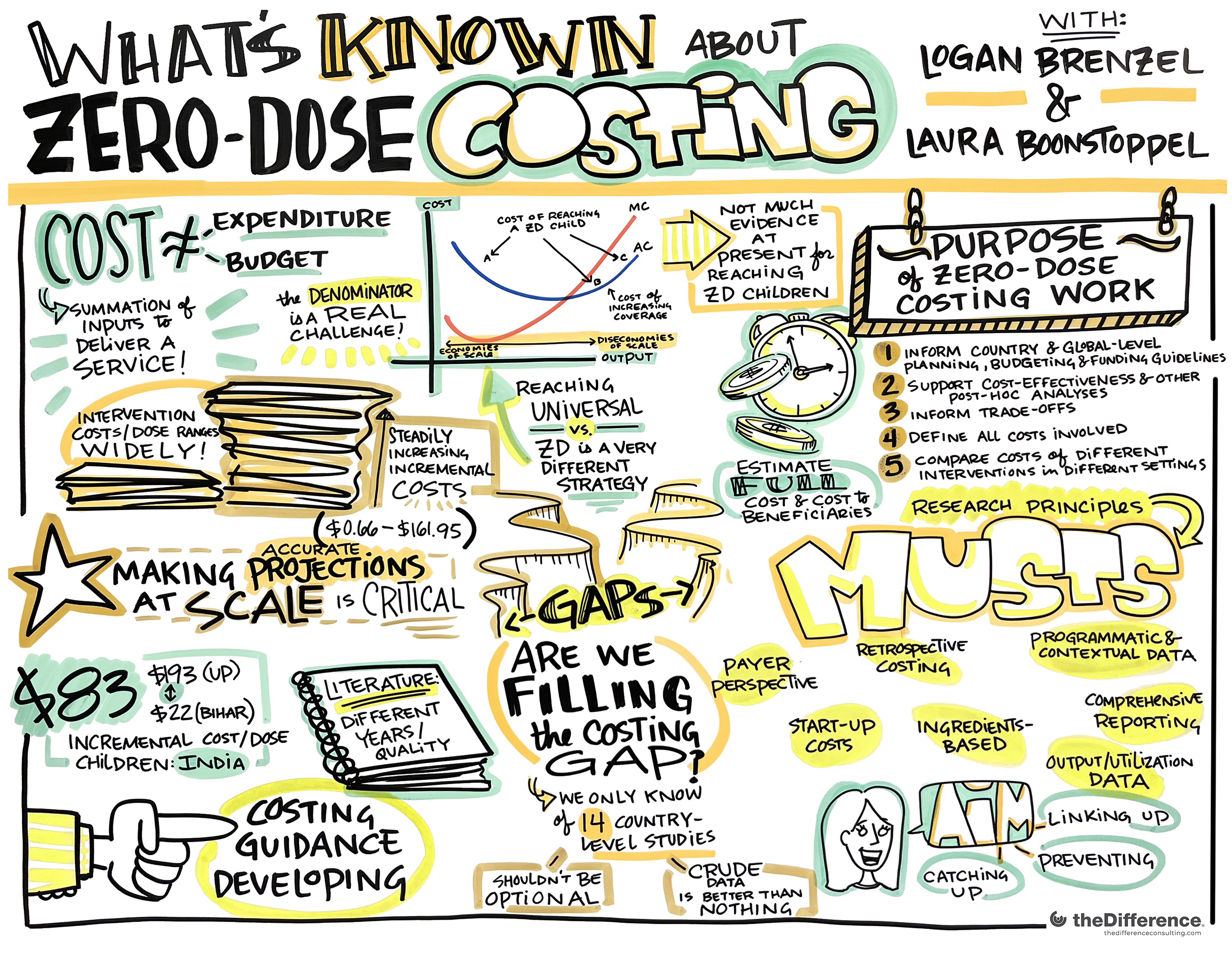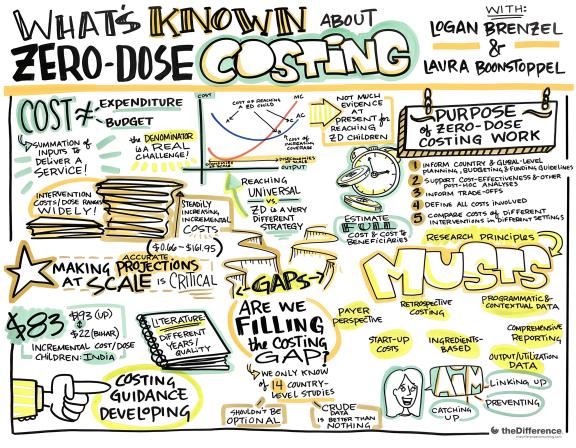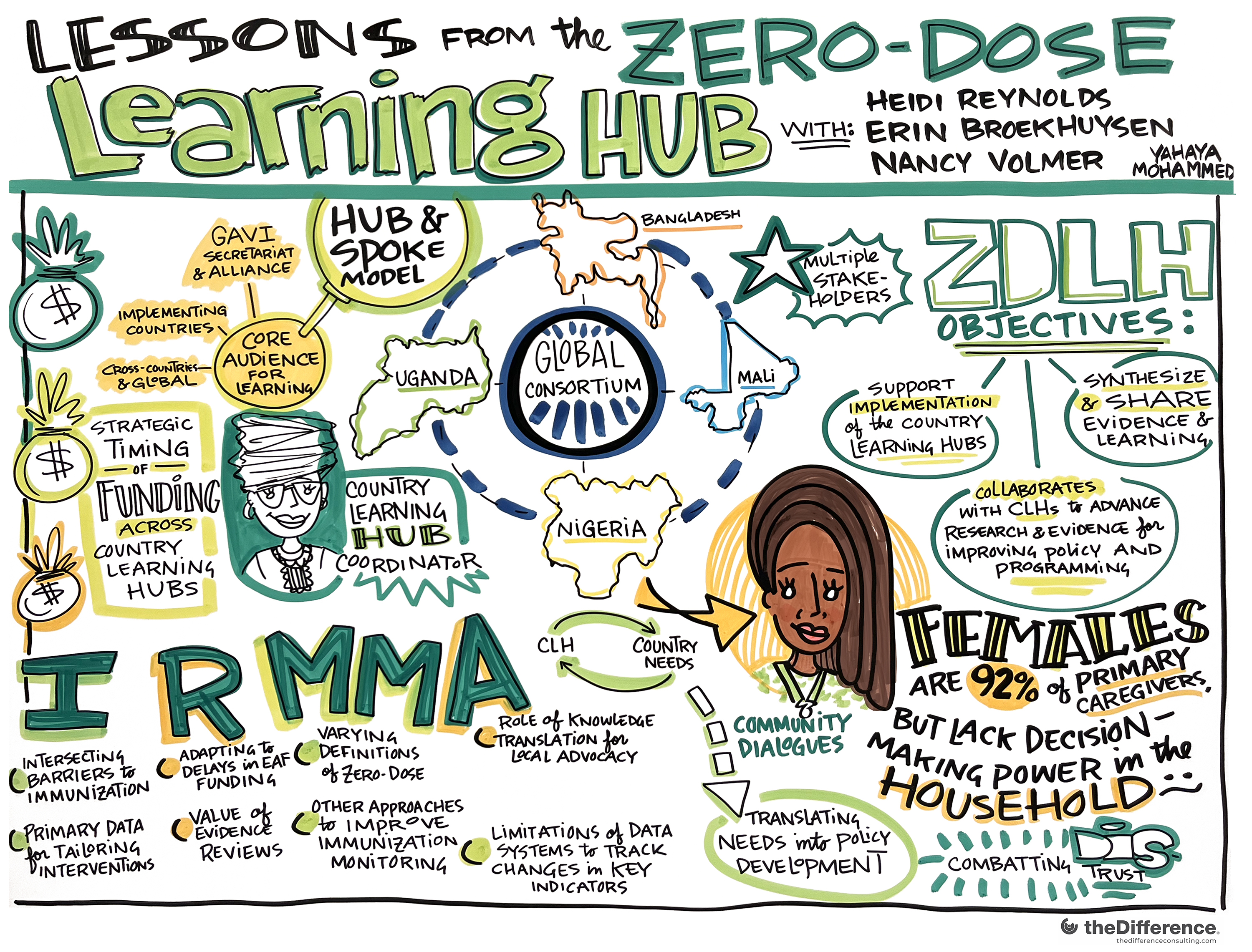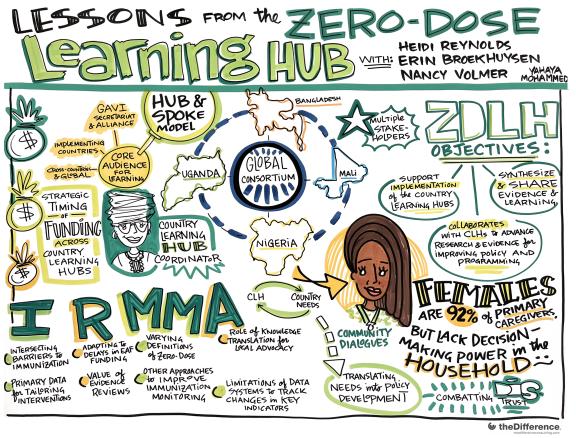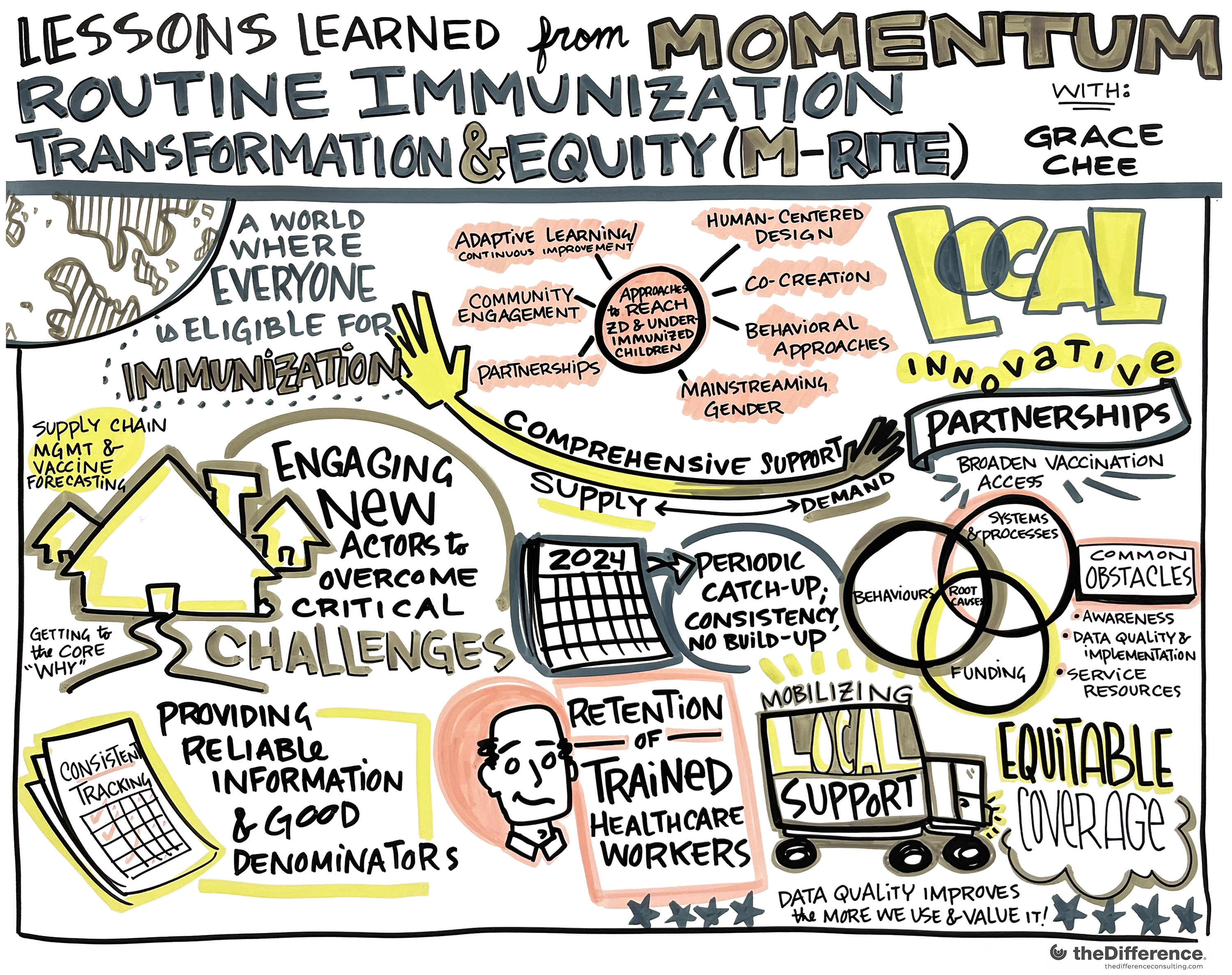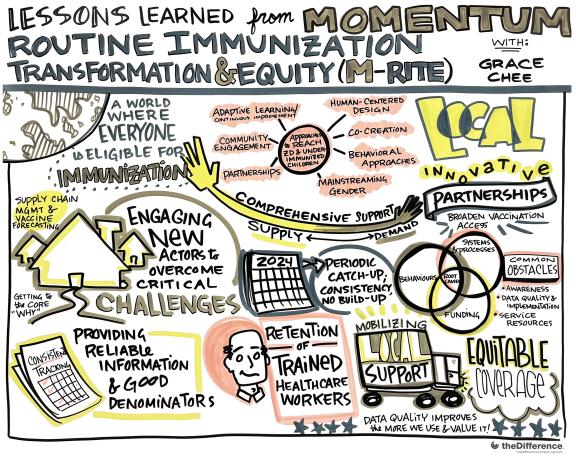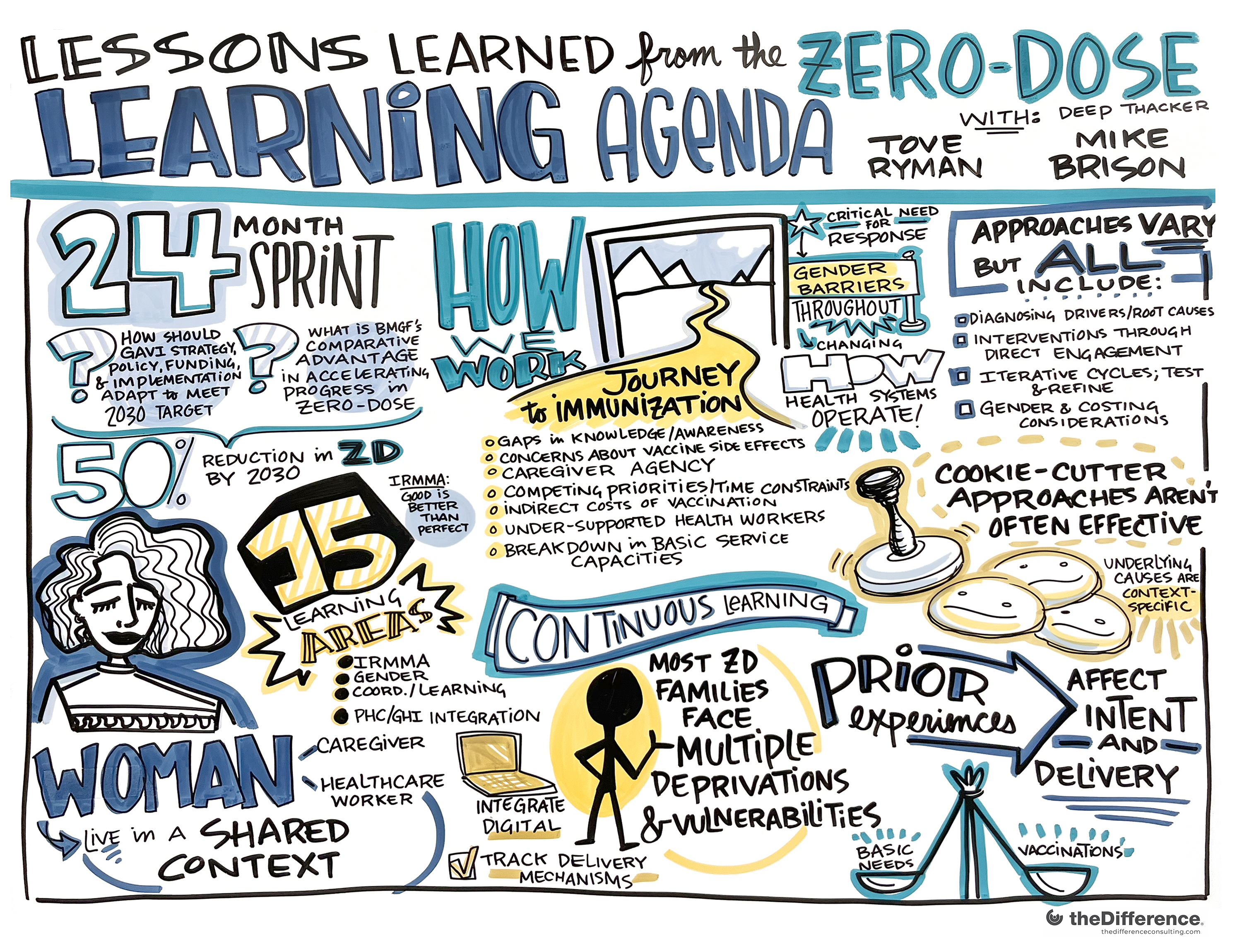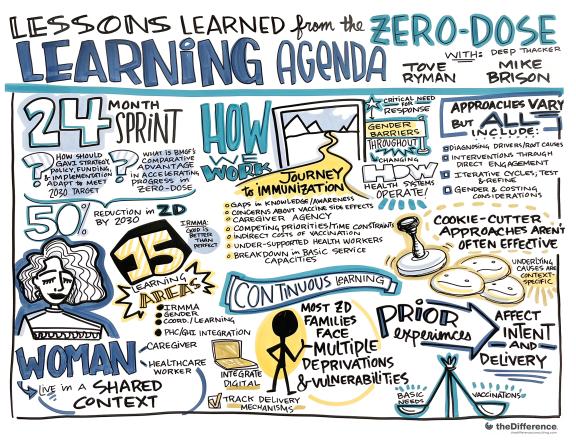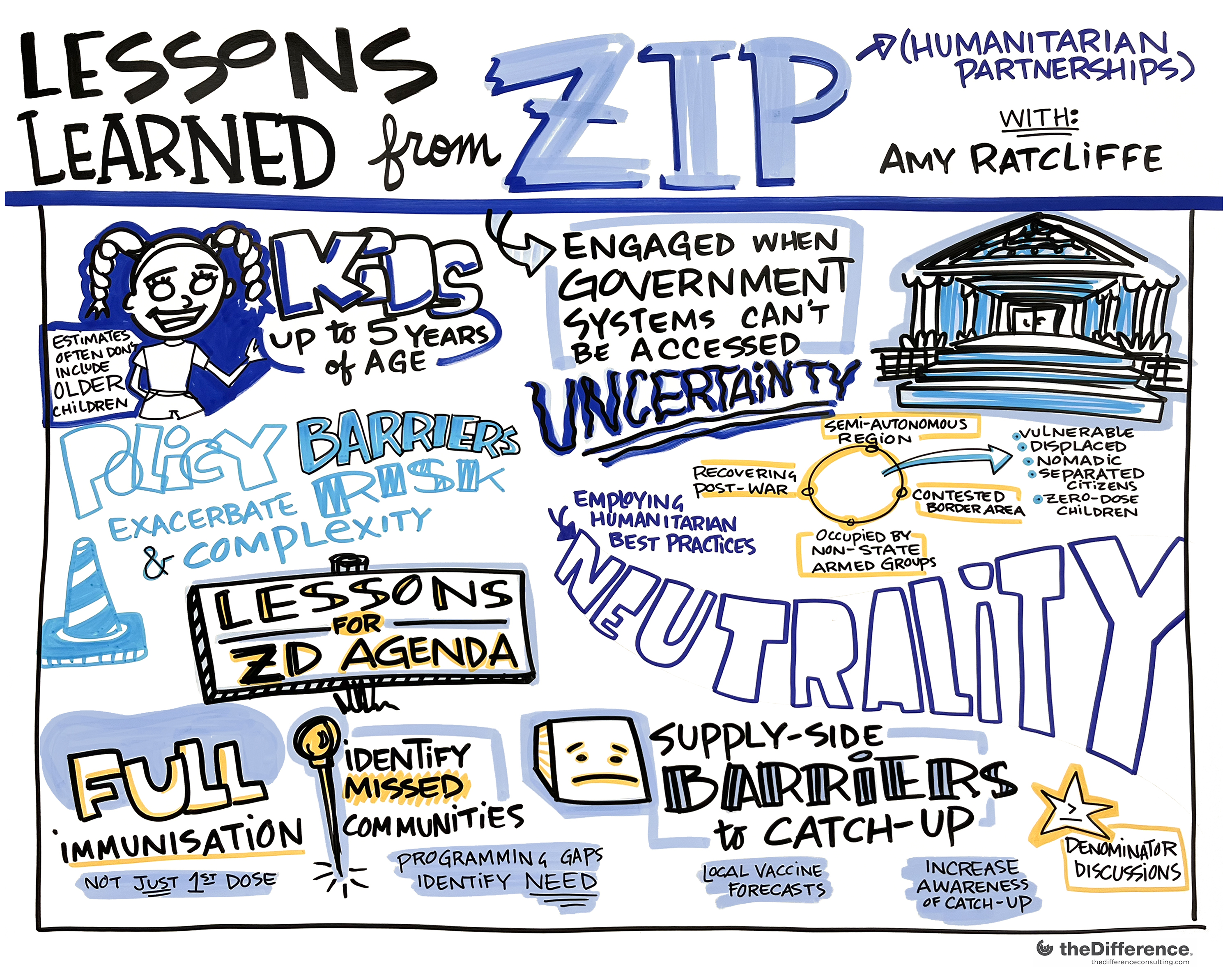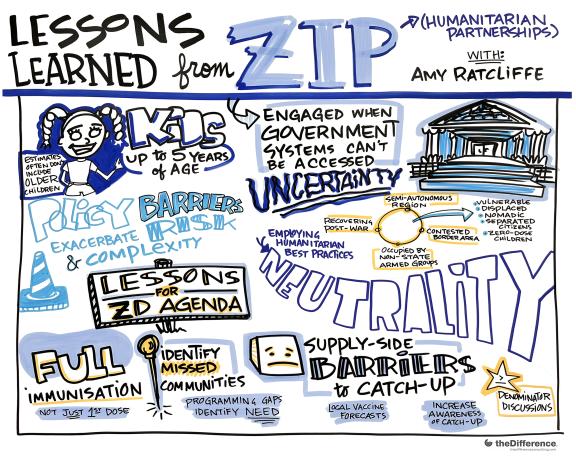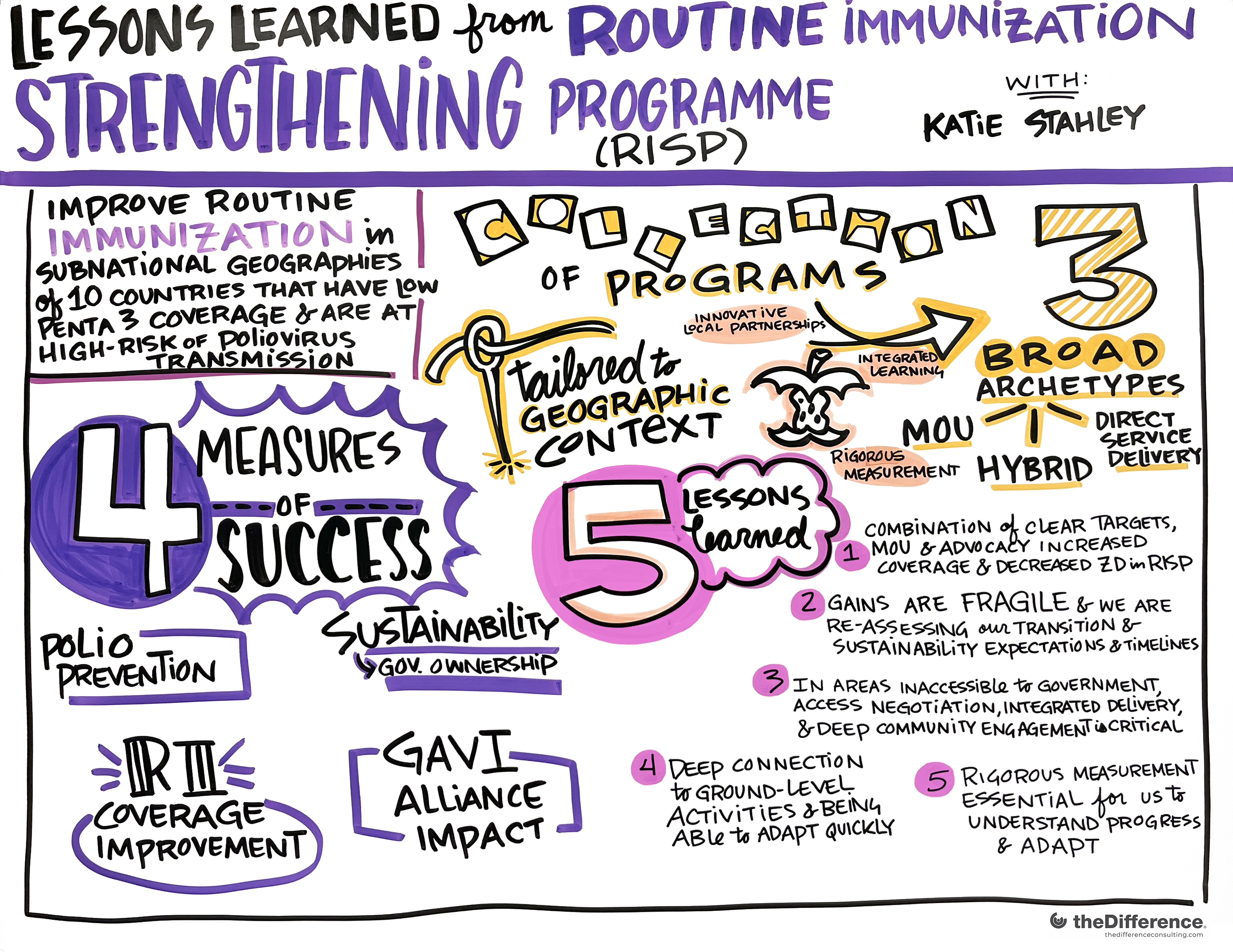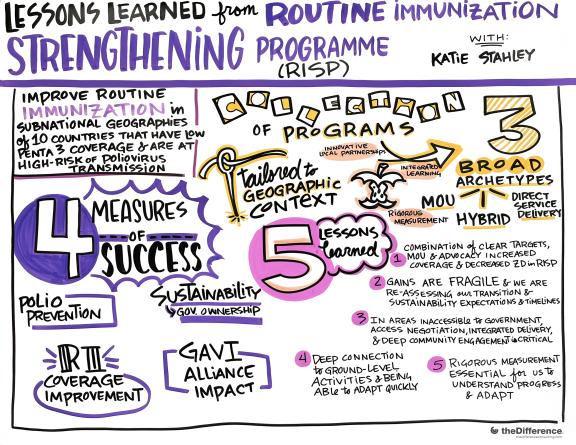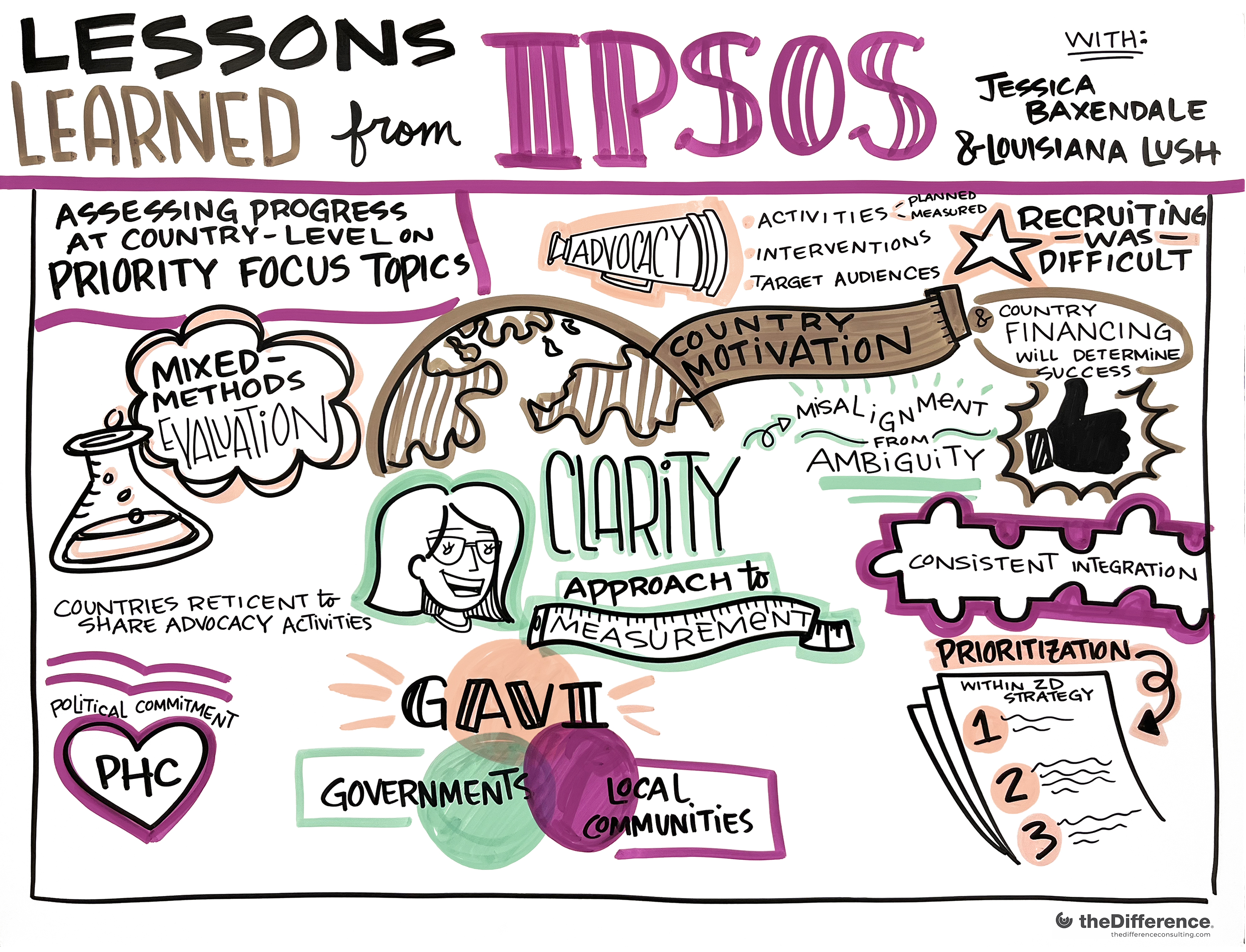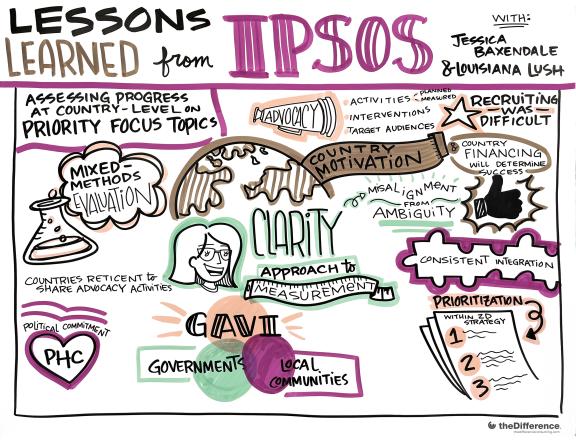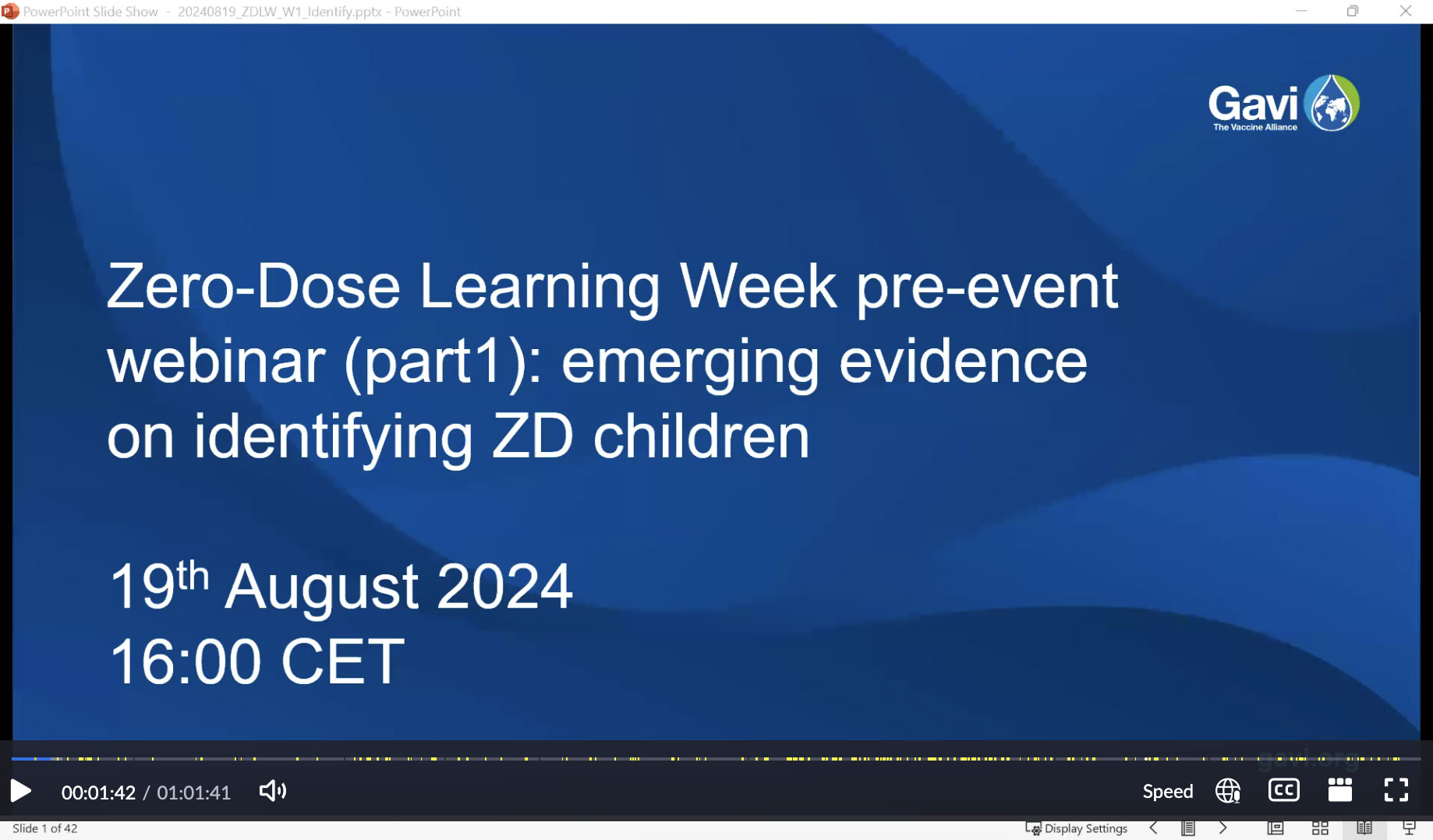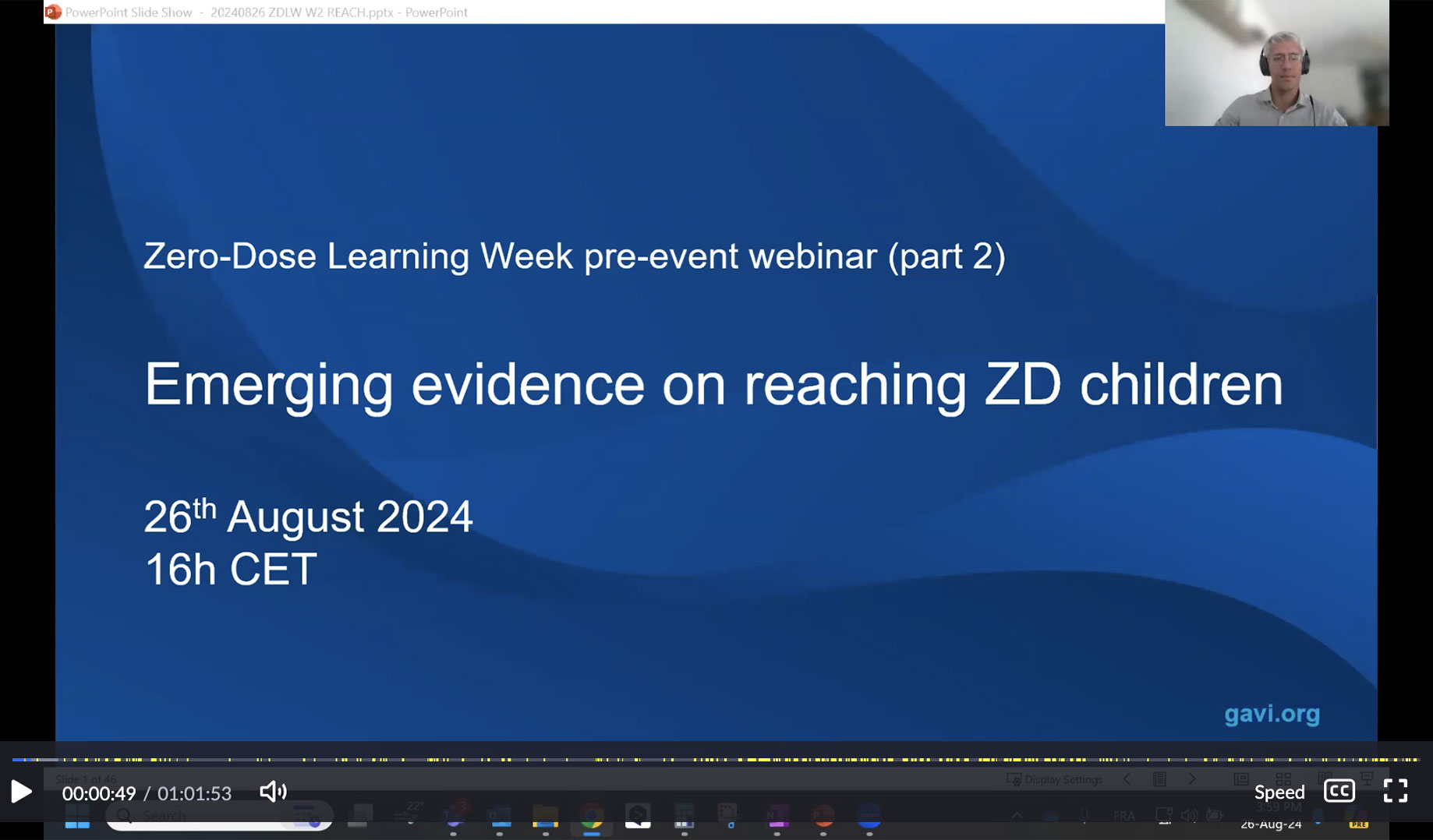Zero-Dose Learning Week
As part of Gavi's Zero-Dose Learning Week in September 2024, Gavi hosted a full-day webinar to share emerging evidence on reaching zero-dose children with Alliance partners.
Global learning consortia leads and selected experts presented key findings and recommendations aimed at shaping Gavi's strategy, policies, and programming for the years ahead. This event provided valuable insights to inform future immunization efforts and enhance equity in global health.
Zero-Dose Learning Week Materials
Following a call for abstracts from the global immunization community, expert reviewers scored and ranked the submitted abstracts. 181 were accepted and are available for download.
For top scoring abstracts with results, authors were invited to submit posters. The 40 abstracts are available to download.
Presenters responded to participant questions submitted during ZD Learning Day.
Zero-Dose Learning Week Post-Event Webinar: A Deep Dive on the Top-Rated ZD Evidence
Access the recording of the post-event webinar highlighting key lessons and emerging evidence on zero-dose children, along with strategies and barriers to identifying and reaching them across diverse settings.
Zero-Dose Learning Week Presentations
Author: Audrey Beaulieu, Joelle Ducharme, Celine Thibeault, Bangaman Christian Akani, Daniela Ziegler, Dan Hogan, Gustavo Caetano Correa, Heidi Reynolds, Mira Johri
Organization: Université de Montréal et du monde, Gavi, ERG
This scoping review of peer-reviewed, quantitative studies on zero-dose (ZD) children presents results from 82 articles on barriers to vaccination and deprivations faced by ZD children. No articles were found on interventions specific to ZD children. Findings underscore the need for evidence and for catalytic approaches to address multiple deprivations.
Author: Sunitha Chandrasekhar
Organization: Sabin Vaccine Institute
This presentation by Dr. Sunitha Chandrasekhar with Sabin Vaccine Institute summarizes key findings from the 181 abstracts. It underscores the significant barriers to reaching ZD and under-immunized children in low- and middle-income countries (LMICs). Challenges such as delivery outside the health system, limited healthcare access, and health workforce gaps are highlighted. The synthesis also provides recommendations for integrating primary health care, addressing gender considerations, and the role of the community to improve vaccine equity and ensure broader immunization coverage.
Author: Logan Brenzel
Organization: Bill & Melinda Gates Foundation
Understanding the financial requirements to reach zero-dose (ZD) children is essential for expanding global immunization coverage. Recent analyses highlight the complexities of calculating costs, which vary widely depending on factors such as intervention type, geography, and existing immunization coverage levels. Studies show that costs increase as immunization efforts expand to harder-to-reach populations, emphasizing the need for efficient, targeted approaches. This review outlines key evidence and ongoing research into the cost-effectiveness of interventions aimed at reducing the number of ZD children in low- and middle-income countries (LMICs).
Author: Laura Boonstoppel
Organization: ThinkWell
Addressing the evidence gap on the cost of reaching zero-dose (ZD) children is critical for informed decision-making in global immunization efforts. This presentation highlights a new document that is available on research principles for costing interventions for the cost of reaching ZD children. By establishing research principles and gathering robust cost data, stakeholders can assess the value for money of different approaches, optimize planning, and improve the sustainability of immunization programs targeting the hardest-to-reach children in low- and middle-income countries (LMICs).
Author: Heidi Reynolds, Erin Broekhuysen, Nancy Vollmer
Organization: Gavi, JSI
Project: Zero-Dose Learning Hub
The Zero-Dose Learning Hub (ZDLH) is composed of learning hubs in Bangladesh, Mali, Nigeria, and Uganda, and at the global level. Country learning hubs generate and use data to identify and address barriers to immunization for zero-dose (ZD) children, understand what interventions work to ensure timely immunization and reach ZD children, and to improve monitoring and measurement. This presentation offers a number of recommendations across the Identify-Reach-Monitor-Measure-Advocate (IRMMA) framework and contains links to additional resources.
Author: Yahaya Mohammed
Organization: African Field Epidemiology Network (AFENET); African Health Budget Network (AHBN)
The Nigeria Zero-Dose Learning Hub aims to enhance immunization equity by generating evidence and insights to guide policy and program improvements. Funded by Gavi, and implemented by AFENET and AHBN, the Learning Hub addresses barriers such as low vaccine confidence, gender inequality, and economic challenges. This presentation shares findings on regional variation in barriers to immunization, the decentralized immunization monitoring approach for timely monitoring and programmatic course correction, implementation research activities to assess the effectiveness and costs of the identify, enumerate, and vaccinate (IEV) strategy, capacity building, and advocacy and engagement.
Author: Grace Chee
Organization: JSI
Project: MOMENTUM Routine Immunization Transformation and Equity (MRITE)
MOMENTUM Routine Immunization Transformation and Equity (MRITE) project aims to sustainably address the root causes of zero-dose and under-immunized children through comprehensive strategies that engage communities, strengthen health systems, and foster innovative partnerships. By improving vaccine delivery, supply chain management, and community outreach, MRITE supports immunization programs across multiple countries. Key efforts include enhancing data quality, addressing gender-related barriers, and mobilizing private sector resources to expand vaccination access. This presentation also covers strategies for identifying, reaching, and monitoring ZD and underimmunized children in Mozambique, the Democratic Republic of Congo, and Nigeria.
Author: Tove Ryman, Mike Brison
Organization: Bill & Melinda Gates Foundation
The Zero-Dose Learning Agenda (ZDLA) is led by the Bill & Melinda Gates Foundation and focuses on identifying subnational programmatic actions to reduce zero-dose (ZD) children by 50% by 2030 in six high-burden countries. ZDLA diagnoses the root causes of ZD children, develops tailored interventions, and captures insights on effective strategies. BMGF also has a operational learning workstream in order to understand the challenges and solutions to facilitate funding levers and implementation of the package of ZD interventions funded by Gavi.
Author: Deep Thacker, Krishna Kumar Choudhary, Ravi Prakash, John Anthony
Organization: Indian Health Action Trust (IHAT), Uttar Pradesh Technical Support Unit (UP-TSU); University of Manitoba
Significant gaps exist in reaching zero-dose (ZD) children in high-burden countries such as India, Nigeria, and Ethiopia. A Rapid Assessment Survey (RAS) in 2021 in India revealed disparities in immunization coverage, with many ZD children and their caregivers lacking access to vital services like antenatal care and vaccinations. A second study used data from Demographic and Health Surveys from eight high ZD burden countries. Results show that ZD children and their families do often have contact with the health facility and recommend that better tracking of service delivery records across services, integration of services, and use of inter-operable digital systems could improve continuity of care and reduce the ZD burden.
Author: Amy Ratcliffe
Organization: Gavi
The Zero-Dose Immunization Program (ZIP) is a Gavi initiative designed to reach children in humanitarian settings where government health services are inaccessible. Active in countries such as South Sudan, Ethiopia, and Chad, ZIP delivers life-saving vaccines to children in conflict zones, displaced populations, and nomadic communities. By working beyond government reach, ZIP ensures full immunization coverage through agile programming, local partnerships, and neutral humanitarian access, addressing the unique challenges of children living in vulnerable and high-risk environments.
Author: Katie Stahley
Organization: Bill & Melinda Gates Foundation
The Routine Immunization Strengthening Program (RISP), supported by the Bill & Melinda Gates Foundation, focuses on improving immunization coverage and reducing zero-dose (ZD) children in subnational geographies across ten countries with low Penta3 coverage and high risk of polio transmission. By partnering with governments and leveraging innovative local partnerships, RISP aims to double DTP3 coverage while strengthening health systems for long-term sustainability. The program tailors its approach to each context, combining rigorous monitoring, integrated service delivery, and community engagement to ensure that even the most vulnerable populations receive lifesaving vaccines.
Author: Jessica Baxendale, Louisiana Lush
Organization: Ipsos
Ipsos presented emerging findings from an evaluation of Gavi's contribution to reach zero-dose (ZD) and missed communities through its 5.0/5.1 strategy period (through 2025). The current phase of the evaluation has five focus priority topics, and the presentation focused on two areas: the integration of immunization initiatives with primary health care (PHC) systems and the role of advocacy in driving political commitment to the ZD agenda. Methods are mixed (review of secondary data and documents and stakeholder interviews). Findings highlight both the successes and challenges with PHC integration and how it relates to health systems or ZD outcomes. There is not a common definition of advocacy or its approaches, making it difficult to identify best practices in this area.
Zero-Dose Learning Week Pre-event Webinars
Author: Sunitha Chandrasekhar; Melaku Tsehay; Jasim Uddin
Organization: Sabin Vaccine Institute; CCRDA, CORE Group; icddr,b; Jhpiego; RedOrange
In this first of two, pre-Zero-Dose Learning Week webinars, evidence from accepted abstracts are synthesized to share insights on characteristics and determinants of zero-dose (ZD) and under-immunized children across various regions. Key findings include barriers such as gender-related issues, cultural beliefs, and accessibility challenges that hinder vaccination efforts. The session highlights promising interventions, including the use of digital technologies, geospatial tracking, and community engagement to identify and reach ZD children. Then, the presentation takes a deep dive in to Ethiopia and Bangladesh to understand the factors contributing to ZD in those contexts.
Author: Sunitha Chandrasekhar; Josephine Ihahi; Meggie Gabida
In this second of two, pre-Zero-Dose Learning Week webinars, evidence from accepted abstracts are synthesized to share emerging strategies for reaching zero-dose (ZD) children in low- and middle-income countries. The session highlights promising interventions such as civil society engagement, digital innovations, and gender-responsive approaches to improve vaccine access. Key takeaways include the importance of tailored service delivery, the role of community health workers, and integrating routine immunization with primary healthcare services. Then, two presentations, one from Somalia and Kenya, and the other from Zimbabwe, share results about context-specific strategies to reach ZD children.
